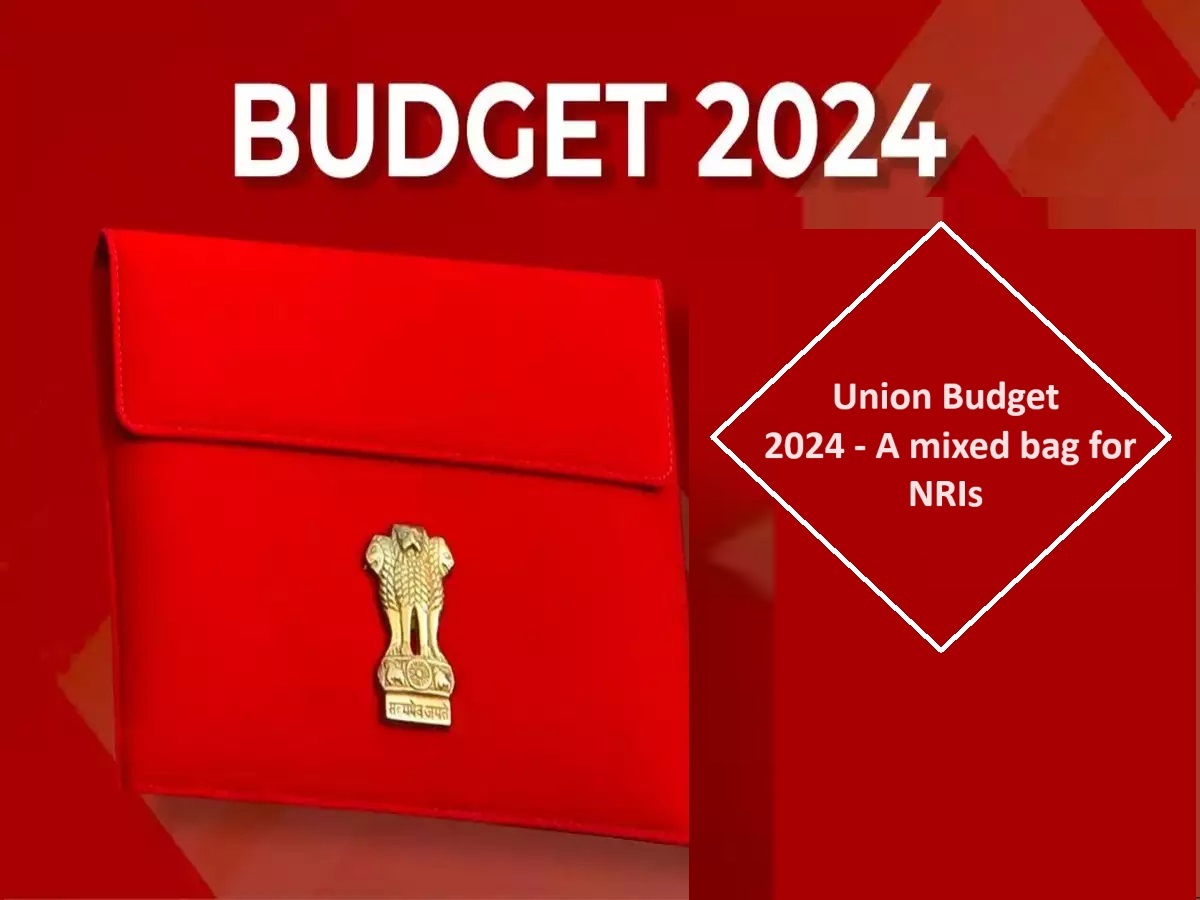 Union Budget 2024 – A mixed bag for NRIs
Union Budget 2024 – A mixed bag for NRIs
Author: Overseas Indian Desk, at ZEUS Law
Budget 2024, being an Interim Budget, recognized the unique requirements of the Indian as well as Non-Resident taxpayers. Over a period of years, the Government of India has introduced various provisions to ease the tax burden compliances over the Non-Resident Indians (‘NRIs’).
Instances for easement of Tax burden by the Government in the past
- Centralised Processing Centres have been established by the Department of Income Tax to ensure quicker return processing. Additionally, the pre-filled returns and single informative tax statements have also significantly reduced the time and effort required by NRIs to fulfil the tax obligations.
- Several new Double Taxation Avoidance Agreements (‘DTAA’) have been entered into by the Government to avoid duplicity of taxes, to be paid in both the countries by the NRIs.
Budget 2024 and the Indian Diaspora
The Interim Budget 2024 is poised to transform the economic landscape of India affecting the Resident as well as Non-Resident Indians. The budget has a lot in the bag to steer the overly populist measures, while keeping attuned to the citizenry’s ambitions and needs. This delicate balancing act of the Ministry of Finance stands as a testament to stability, growth, and the unwavering dedication of the Government to inclusive development.
Economic Stability
The Government has pulled a strategic move to convey the economic and fiscal stability by judiciously adjusting the fiscal deficit to 5.1% of GDP for Financial Year 2025 and by maintaining the existing rates for direct and indirect taxes, including the export duties. This move of the Government has ensured a trajectory growth and stability in the economy by providing a sense of security and persistence in the continuing businesses, individuals, and other new business opportunities.
New Opportunities
The Interim Budget has also laid a push for growth of manufacturing sector. The automobiles manufacturing and other such opportunities like Electronic Vehicles market, have been welcomed to bring economic growth and employment opportunities. The ensuing global trade and supply chain related sensitivities continue to act as enablers for India to shift gears and change its focus from exporting what it can, to a global demand-based export-led diversification approach – all with a view to move up the global value chain. The subsidy rate has also been decreased, inviting opportunities to the manufacturing sector and, opening doors for the Indians as well as the NRIs to invest in the sector.
Some missed opportunities
Tax Deducted at Source (‘TDS’) is income tax reduced from the money paid at the time of making specified payments such as rent, commission, salary, interest etc. by the persons making such payments. Currently all the income generated in India by the NRIs, are subject to highest rate of tax or rate specified in DTAA with respective countries. Through the DTAA, NRIs can avoid the duplicity of tax implications. India has a complex system for the realisation of the taxes paid by the NRIs in both the countries, i.e., India and the countries they are residing in. For example, rent payments are subject to 30 per cent TDS. Also, when an NRI sells a property, the buyer is required for TDS be deducted at 20 per cent on the sale amount, even if there is a loss incurred by the non-resident on the property. This brings no incentive for the NRIs to buy or maintain a property in India.
Is Budget 2024 holding steady or Big Bang for NRIs?
Final Budget will be released after the Lok Sabha elections in April – May 2024 and the NRIs are advocating for changes that would make it simpler for them to manage their income and tax obligations in India.
- NRIs are hoping that their hardship in claiming refunds due to unnecessary high deduction of TDS will be taken into consideration and be eased.
- NRIs desired that the tax slabs should be revisited as the factors affecting the tax slabs are chiefly based on their taxable income and the other factors affecting are not considered specifically for NRIs.
- The limit for remittances from $1 Million should be revisited. NRIs have laid their eyes for an increase in the limit of remittances.
As India’s economy strengthens, Non-Resident Indians (NRIs) are increasingly interested in investing and returning home, with hopes that the upcoming budget will offer them favourable policies.
****





















